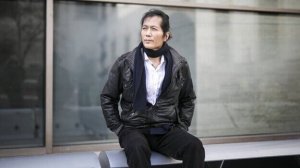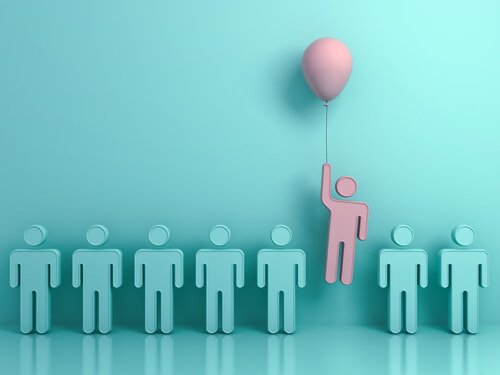Philosopher Byung-Chul Han and "the Hell Where Everything's the Same"

Byung-Chul Han is a philosopher and writer who was born in South Korea. He has become extremely influential in today’s world. Byung reflects on a lot of different subjects, but he focuses a lot technology and the culture that comes from it. He also dedicated a lot of his writing to work and creation.
As of now, Byung-Chul Han has already published 16 books. In those books, he has gone into two specific concepts. One of them is the concept of “the burnout society” and the other is the concept of “the transparency society.”
He has a very critical perspective on today’s world. According to him, people exploit themselves and are terrified of anything different. That’s why he also talks about the “hell where everything’s the same.”
“…violence, which is integral to the neoliberal system, no longer destroys the individual from without. It does it from within by causing depression or cancer.”
-Byung-Chul Han-
A lot of people will tell you that you should definitely read Byung-Chul Han’s books if you want to understand today’s world. He has an original, deep, and above all, extremely current perspective. Byung’s one of the few thinkers who’ve gone into things like social media, privacy, and the society of mental dysfunction.
He did some interviews that caused a huge splash during a visit to Spain. In those interviews, he nicely summed up some of his base concepts. We’re going to try to give you a general idea of what he talked about.
The illusion of freedom according to Byung-Chul Han
According to him, freedom is nothing but an illusion in this day and age. The main thing we have now is voluntary slavery. For example, there’s the supposed freedom of expression you get on social media. The truth is that the powers use social media to keep tabs on the public.

Byung-Chul Han says that people have an almost pornographic desire to show their private life. We show off our thoughts, private moments, feelings, and everything we are or want to be through social media. And we do it all “voluntarily.” The powers that be don’t need to pry or spy on anyone’s secrets because we offer them up spontaneously now.
Along those lines, people have “voluntarily” signed up for a way of producing things where self-fulfillment is the absolute center. Byung-Chul Han says that self-fulfillment is more like self-exploitation. The end product of all this is an emotionally and physically burned out, exhausted worker.
The hell where everything’s the same and there’s intolerance for what’s different
Some of his reflections are about sameness and difference. He says that the fact that people feel like individuals is just another illusion. Everyone wants to be different because everything is the same. This desire is the proof of how identical people’s thought patterns are.
What comes out of that is radical conformism. People accept the idea of “living like everyone else.” They endlessly produce things and pointlessly show themselves off for the sake of the ideas of success forced upon them.
You find depression and anxiety on the opposite side of that coin. We get sick for mysterious reasons. Byung-Chul Han thinks that this system is stable and almost impossible to break. He calls it “neoliberalism.”

According to him, we need a revolution in how we use our time. There’s nothing hypocritical about his statement: “…time you spend working is time you’re wasting, not time for yourself.” On one hand, this means we need free time.
Time that feels like a holiday where you stop everything. But it’s not a pause or a break where you go back to making things later on. He’s talking about personal time that stands up for not doing anything seen as “productive” for neoliberalism.
This philosopher’s ideas are fresh and provocative. His criticisms are sharp and direct. However, they’re also well thought-out and argued.
A lot of his books have been translated into English and you can even find some of them online for free. We highly recommend them for anyone who doesn’t like the way things are right now.
Byung-Chul Han is a philosopher and writer who was born in South Korea. He has become extremely influential in today’s world. Byung reflects on a lot of different subjects, but he focuses a lot technology and the culture that comes from it. He also dedicated a lot of his writing to work and creation.
As of now, Byung-Chul Han has already published 16 books. In those books, he has gone into two specific concepts. One of them is the concept of “the burnout society” and the other is the concept of “the transparency society.”
He has a very critical perspective on today’s world. According to him, people exploit themselves and are terrified of anything different. That’s why he also talks about the “hell where everything’s the same.”
“…violence, which is integral to the neoliberal system, no longer destroys the individual from without. It does it from within by causing depression or cancer.”
-Byung-Chul Han-
A lot of people will tell you that you should definitely read Byung-Chul Han’s books if you want to understand today’s world. He has an original, deep, and above all, extremely current perspective. Byung’s one of the few thinkers who’ve gone into things like social media, privacy, and the society of mental dysfunction.
He did some interviews that caused a huge splash during a visit to Spain. In those interviews, he nicely summed up some of his base concepts. We’re going to try to give you a general idea of what he talked about.
The illusion of freedom according to Byung-Chul Han
According to him, freedom is nothing but an illusion in this day and age. The main thing we have now is voluntary slavery. For example, there’s the supposed freedom of expression you get on social media. The truth is that the powers use social media to keep tabs on the public.

Byung-Chul Han says that people have an almost pornographic desire to show their private life. We show off our thoughts, private moments, feelings, and everything we are or want to be through social media. And we do it all “voluntarily.” The powers that be don’t need to pry or spy on anyone’s secrets because we offer them up spontaneously now.
Along those lines, people have “voluntarily” signed up for a way of producing things where self-fulfillment is the absolute center. Byung-Chul Han says that self-fulfillment is more like self-exploitation. The end product of all this is an emotionally and physically burned out, exhausted worker.
The hell where everything’s the same and there’s intolerance for what’s different
Some of his reflections are about sameness and difference. He says that the fact that people feel like individuals is just another illusion. Everyone wants to be different because everything is the same. This desire is the proof of how identical people’s thought patterns are.
What comes out of that is radical conformism. People accept the idea of “living like everyone else.” They endlessly produce things and pointlessly show themselves off for the sake of the ideas of success forced upon them.
You find depression and anxiety on the opposite side of that coin. We get sick for mysterious reasons. Byung-Chul Han thinks that this system is stable and almost impossible to break. He calls it “neoliberalism.”

According to him, we need a revolution in how we use our time. There’s nothing hypocritical about his statement: “…time you spend working is time you’re wasting, not time for yourself.” On one hand, this means we need free time.
Time that feels like a holiday where you stop everything. But it’s not a pause or a break where you go back to making things later on. He’s talking about personal time that stands up for not doing anything seen as “productive” for neoliberalism.
This philosopher’s ideas are fresh and provocative. His criticisms are sharp and direct. However, they’re also well thought-out and argued.
A lot of his books have been translated into English and you can even find some of them online for free. We highly recommend them for anyone who doesn’t like the way things are right now.
This text is provided for informational purposes only and does not replace consultation with a professional. If in doubt, consult your specialist.







